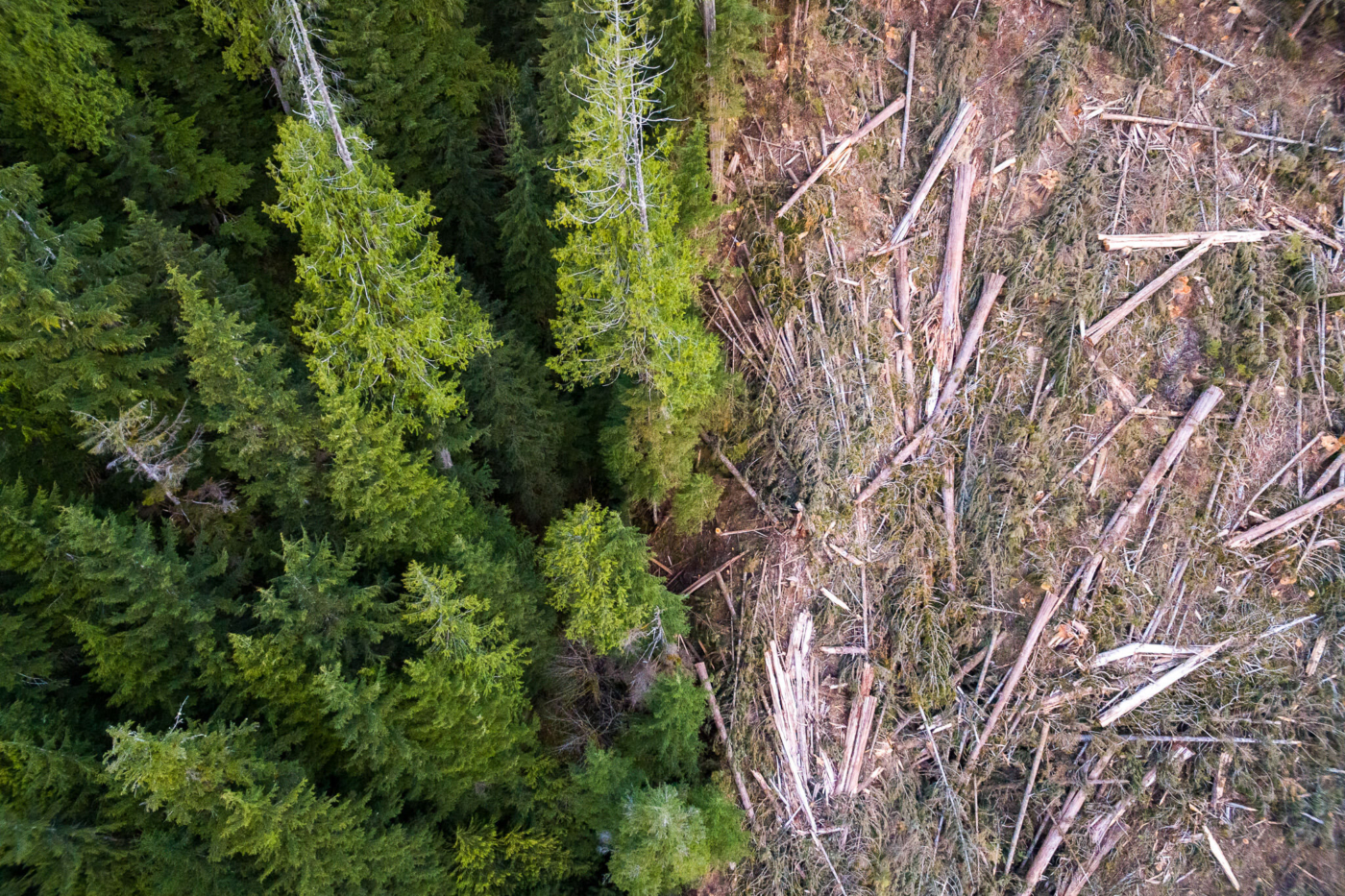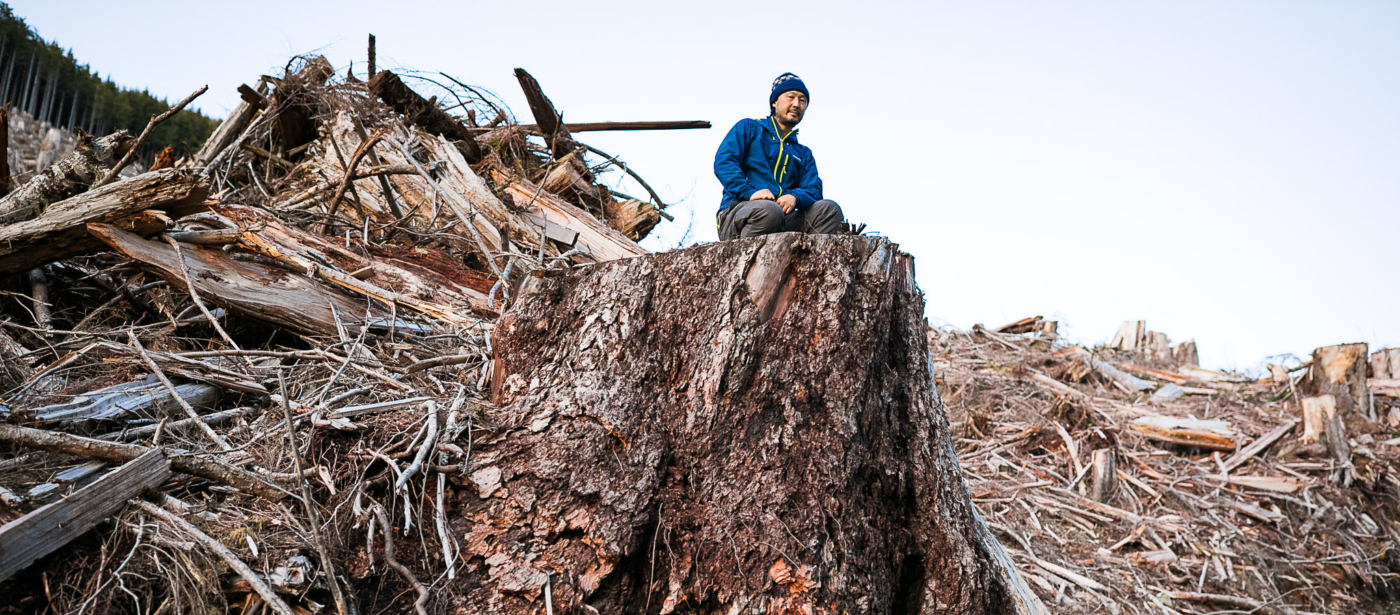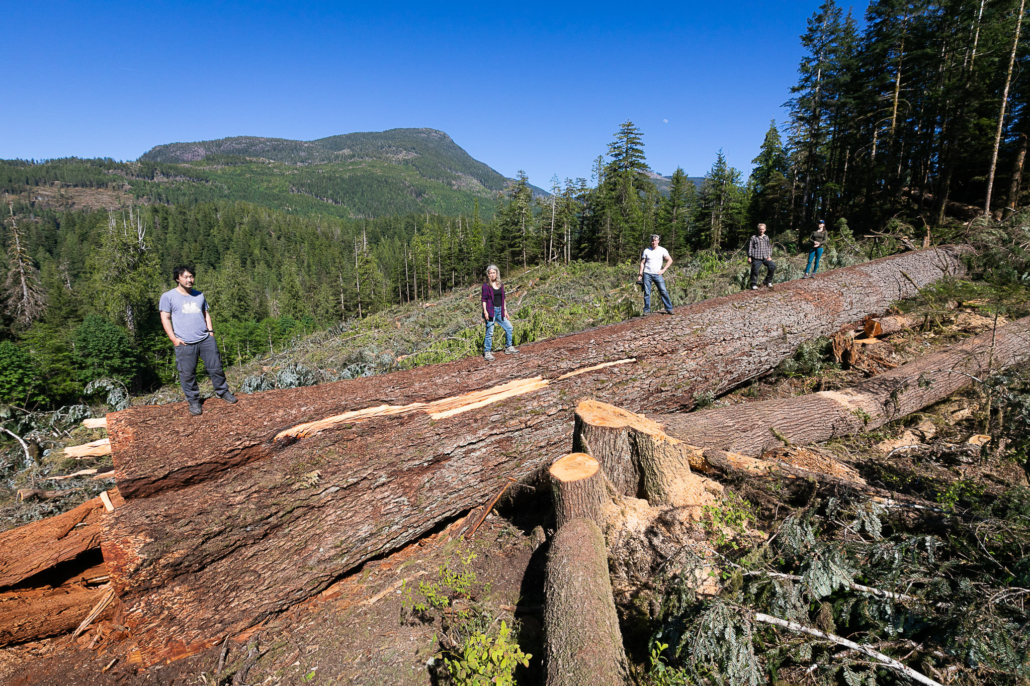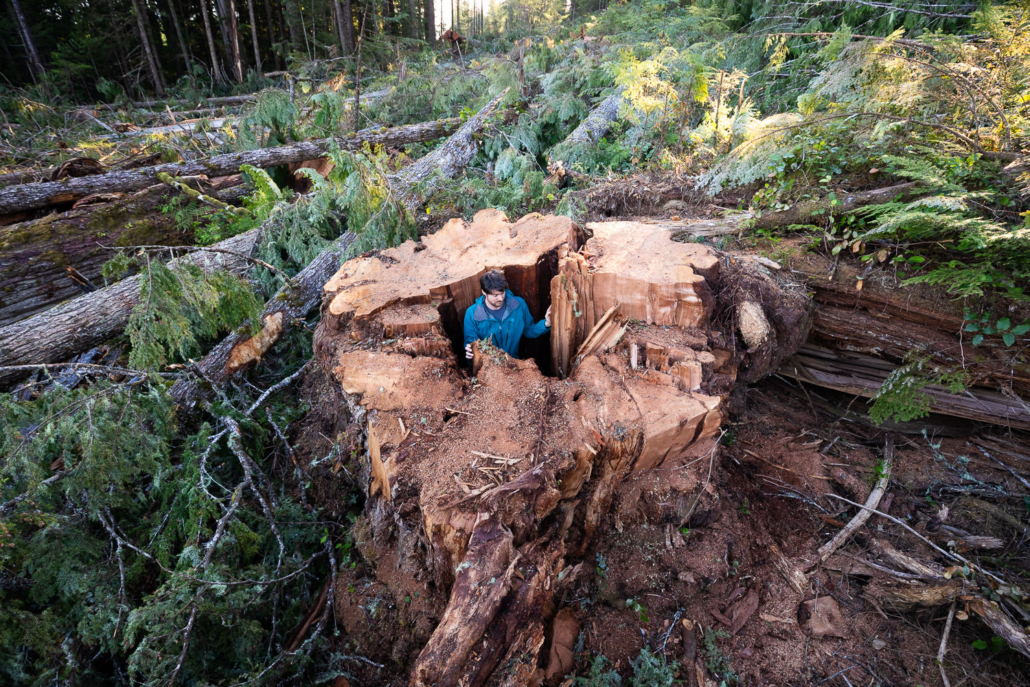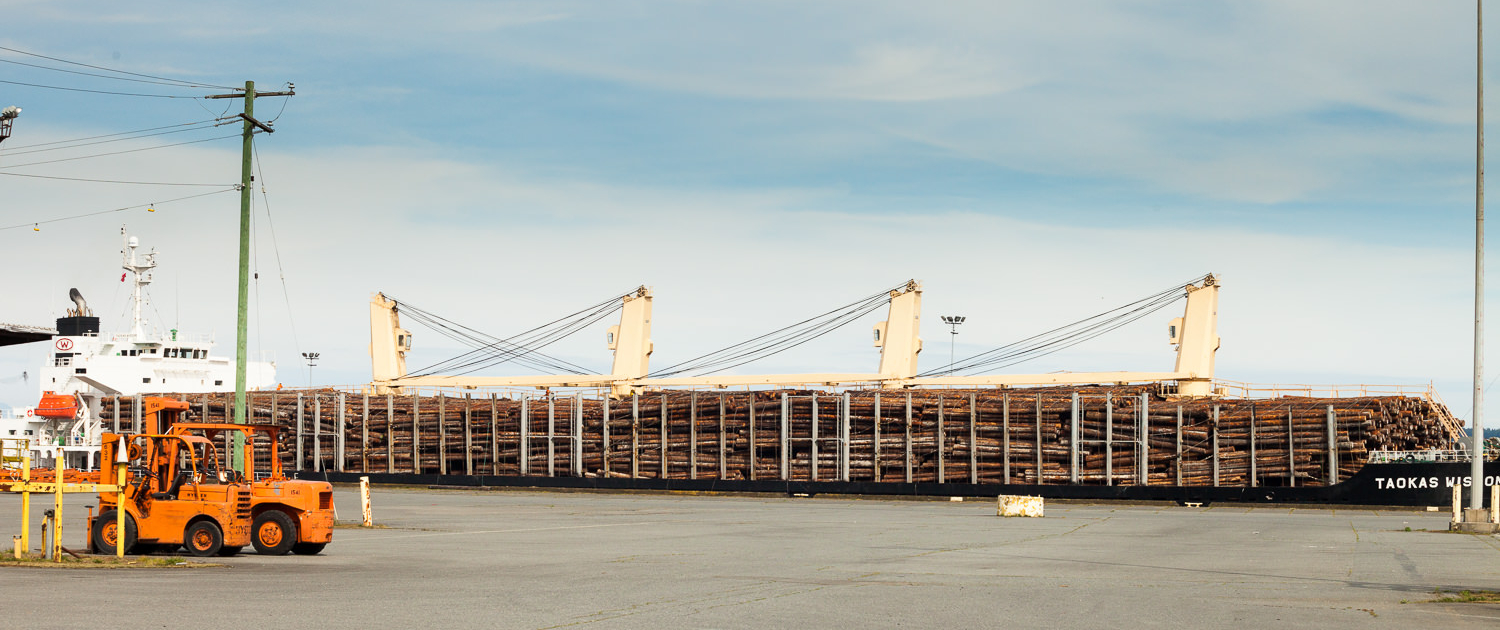 Oct 27 2010
Oct 27 2010Ban Old-Growth Wood and Raw Log Exports to China, Ancient Forest Alliance tells BC Liberal government on the Eve of Trade Mission
The Ancient Forest Alliance is calling on the BC Liberal government to ban old-growth wood and raw log exports to China on the eve of the BC Liberal government’s trade mission to China. Starting tomorrow, from October 28 to November 8, Pat Bell, BC’s new Minister of Forests, Mines, and Lands (formerly the Minister of Forests and Range) will be embarking with industry reps on the BC government’s largest trade mission to China so far.
“Having just come back from a trip to China, I’m more than convinced that expanding Chinese markets for BC wood without any significant export restrictions or regulations will turn out to be a first rate disaster for BC’s old-growth forests and jobs in our wood manufacturing sector,” states Ken Wu, co-founder of the Ancient Forest Alliance. “China’s monstrous appetite for resources, its enormous base of new middle-class consumers, and its vast amounts of cheap labour will virtually commit BC down a path towards eliminating our last old-growth forests, sawmills and wood manufacturing industries, should the BC Liberals continue to open up Chinese markets without any major regulations.”
For several years the BC Liberal government has been spending millions of taxpayers’ dollars to market BC wood products and to lobby Chinese authorities to change building codes in Chinese cities to allow for the construction of six-storey, wood-frame apartments, to promote wooden trusses on roofs, and generally to promote the use of BC wood for construction in a country where concrete, stone, and steel are mainly used.
Currently, several hundred thousand cubic meters of coastal old-growth hemlock and some cedar (4% of BC’s cedar sales) are going to China, as well as large amounts of interior pine, spruce, and fir. The BC government is expecting that a new record of almost 6 million cubic meters (2.5 billion board feet) of BC wood will be exported to China this year (see https://www2.news.gov.bc.ca/
In order to protect its own sawmilling sector, in 2008 Russia announced that it would implement an 80% tax on the export of raw logs leaving the country, which took effect in 2009. Seeing an opening in the Chinese markets which once relied on Russian logs, Forests Minister Pat Bell began a series of trade missions to China in 2008, which he stated was for BC “lumber, not logs”. However, in 2009 Bell approved the first set of raw logs to be exported to China by Coast Tsimshian Resources from BC’s northern coast. In 2009, the company exported 120,000 cubic meters of raw logs to China, Japan, and Korea. China is reportedly the world’s largest importer of raw logs.
“While in the beginning they’ve largely been purchasing BC lumber, which will keep some BC mills afloat, industry analysts have pointed out that China is really interested in BC’s logs – I suspect for the simple reason that purchasing manufactured products with North American labour costs added is less attractive to the Chinese than manufacturing the raw resource themselves for one-tenth the labour cost,” states Wu. “The BC Liberals opened the gates for raw log exports to China last year, despite their previous hollow assertions that their trade missions were for lumber. So in the not too distant future, I would be surprised if BC’s wood manufacturing industry doesn’t begin a migration to China, like so many other North American industries. BC workers will be able to thank Pat Bell and the Campbell government for facilitating this.”
Old-growth forests are important for supporting species at risk, tourism, the climate, clean water for salmon and people, and many First Nations traditional cultures. 75% of Vancouver Island’s productive old-growth forests have already been logged, including 90% of the valley bottoms where the largest trees grow.
See “before” and “after” maps of Vancouver Island’s remaining old-growth forests at: https://www.
See SPECTACULAR photo galleries of Canada’s largest trees and stumps at:
https://www.
The Ancient Forest Alliance is calling on the BC Liberal government to:
– Protect BC’s endangered old-growth forests
– Ensure the sustainable logging of second-growth forests, which now comprise the vast majority of the forested land base in southern BC.
– Ban raw log exports to foreign mills to ensure a guaranteed log supply for BC mills and investors
– Provide assistance and incentives for the retooling and development of value-added mills and wood processing facilities to handle second-growth logs.
“There’s nothing wrong in principle with selling BC wood products to China. However, because it is such a huge market with so much cheap labour, we have to regulate our exports there to protect BC jobs and our environment – starting with a ban on old-growth wood and raw log exports,” states Wu. “Without the needed controls, the BC Liberal government is committing BC’s economy to a deeper path dependency on old-growth liquidation and raw log exports, which will result in the demise of our last old-growth ecosystems and thousands of BC jobs in the wood manufacturing sector. Who the hell wants that?”

